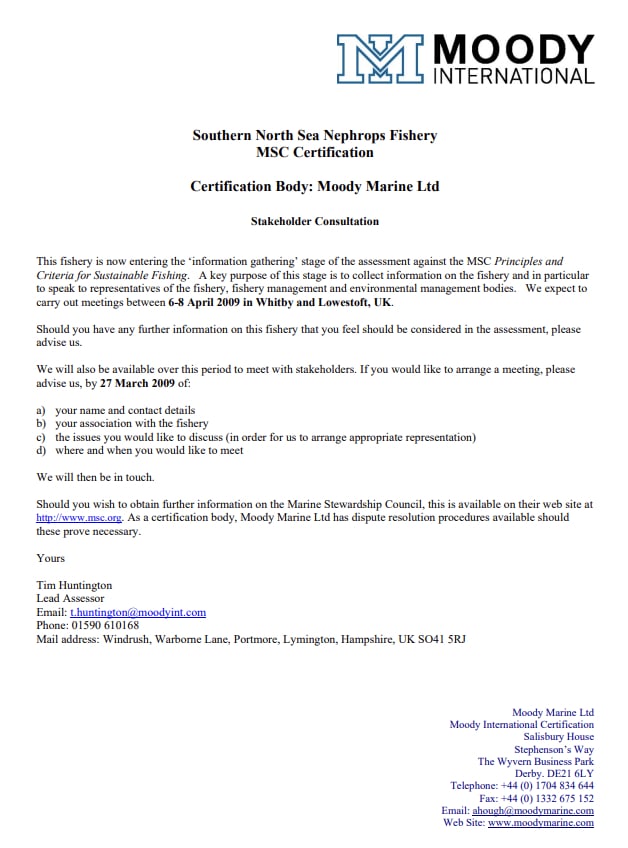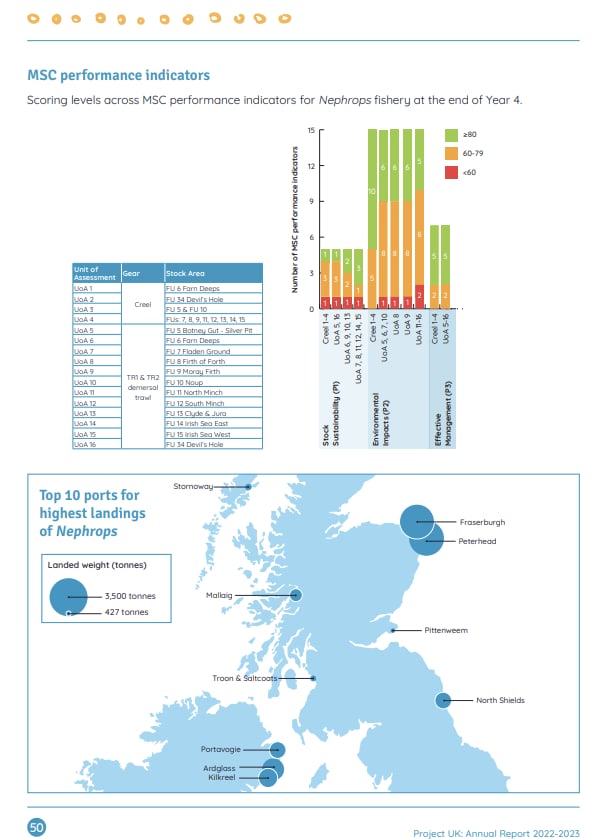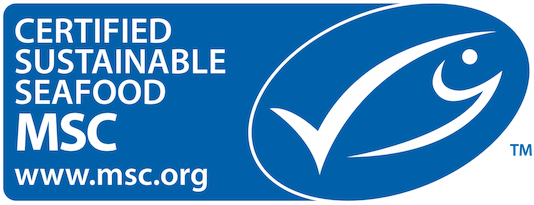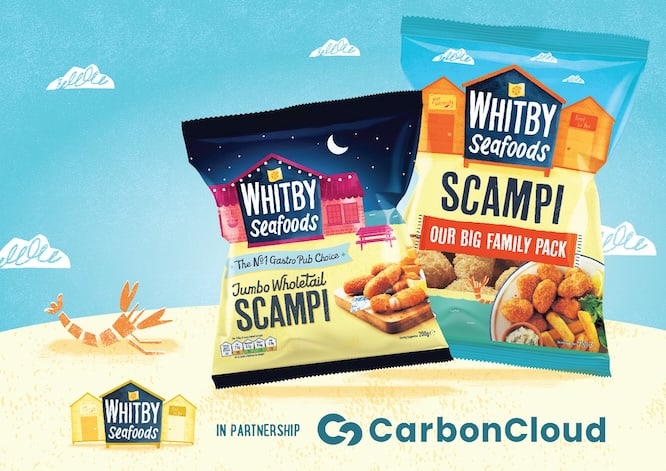RESPONSIBLE SOURCING
As a second generation family business, making scampi for nearly forty years, we have a vested interest in making all aspects of the scampi fishery ever more sustainable. To be able to demonstrate this to those not as close to the “engine room” as us, we believe that independent certification against the Marine Stewardship Council (MSC) to be the very best way to go, and one we have been committed to for over sixteen years.
We started our journey to gain independent MSC certification for our local scampi fisheries in the Southern North Sea back in February 2008 (1) when the MSC was in it’s infancy. The certification was unsuccessful due to the way that the fishing effort on discrete scampi fishing areas (Functional Units - FUs) was managed by government (including the EU) known as “Effective Management” (2). This was a challenge that has continued until recently, when in 2019, the Nephrops (scampi) Fishery Improvement Project (FIP) was launched, even though the fisheries are viewed independently by experts at ICES, who review the annual stock assessments, as being in a healthy condition (3).
The Nephrops FIP supported the long-term sustainable sourcing of scampi in the North Sea, Irish sea and West of Scotland (3). Whitby Seafoods were founding members and chair of this project, to provide information and expertise to deliver a plan for fishery improvements (3). It was hoped that a voluntary set of guidelines (especially around temporal fishing effort management) within the Functional Units could be introduced that would allow MSC certification of all the scampi fisheries. Immense progress was made (3) but the COVID-19 lockdowns meant more time would be needed.
 Letter from the first 2008 MSC bid
Letter from the first 2008 MSC bid
 Taken from 2023 Project UK Report
Taken from 2023 Project UK Report
This delay has had a silver lining though, in that the UK Government’s “Demersal Fishery Management Plans” (FMPs) (4), that will complete at the end of 2024, can provide the legal bedrock with which to ensure the vital third principle of “Effective Management” of the MSC’s principles are more easily met. Otherwise the other pillars had largely been achieved (3).
On top of this, the scampi industry, lead this time by the catching sector themselves (namely the SWFPA, ANIFPO, NIFPO, SFO and CFA but supported by the processing sector, ourselves included!) have embarked upon the journey to the MSC’s newly minted “In transition to MSC” (ITM) programme, that was previously exclusively for artisanal fisheries (5). This creates a framework similar to the project UK FIP, but allows the industry to reframe and redesign itself in line with the new FMPs. The ITM has robust milestone cut offs, that the project needs to meet in terms of demonstrating the progress all stakeholders expect in modern day food production systems facing the challenges of growing global populations, affluence and climate change (2).
Seafish will be secretariat for the ITM, with staff from the same team that lead the drafting of the FMP for Scottish and North Sea Nephrops, providing a useful depth of insight and understanding that will ensure this vital UK fishery continues to maintain its standing as the second biggest UK fishery (3).
Together with Seafish and the Scottish White Fish Producers Association (SWFPA), we have created the below short film to help explain the unique processes inherent to our fishery that makes scampi so abundant in the wild!
1. Hough, Andy and Coombes, Jason. Assessments Southern North Sea nephrops - MSC Fisheries. [Online] February 2008. [Cited: 10 6 2024.].
2. MSC. [Online] [Cited: 10 06 2024.].
3. Project UK. project uk fisheries. [Online] [Cited: 10 06 2024.].
4. Gov.uk. Fishery Management Plans. [Online] [Cited: 10 06 2024.].
5. Consortium, British Retail. [Online] [Cited: 10 06 2024.].



